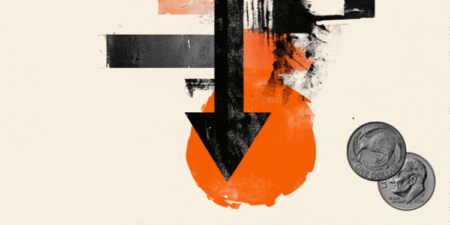- EUR/JPY softens to near 162.70 in Tuesday’s early Asian session.
- BoJ’s Uchida said the central bank will keep raising interest rates if the economy and prices improve as projected.
- ECB’s Wunsch said the central bank may need to cut rates below 2%.
The EUR/JPY cross trades in negative territory around 162.70 during the early European session on Tuesday. The growing expectation that the Bank of Japan (BoJ) will raise interest rates again this year underpins the Japanese Yen (JPY) against the Euro (EUR). Later on Tuesday, the European Central Bank (ECB) policymakers are set to speak, including Piero Cipollone and Klaas Knot.
BoJ deputy governor Shinichi Uchida said that the central bank will continue to raise interest rates if the economy rebounds from an expected hit from higher US tariffs, while warning of a highly uncertain outlook. Additionally, the BoJ’s Summary of Opinions from the last meeting suggested that policymakers haven’t given up on hiking interest rates further, and some board members saw scope to resume rate hikes if developments over US tariffs stabilise. This, in turn, provides some support to the JPY and acts as a headwind for EUR/JPY.
On the Euro’s front, traders raise their bets that the ECB will cut its interest rates further due to growing concerns over Eurozone growth and inflation. The markets have priced in nearly a 90% possibility of an ECB rate cut on June 5 but have priced in only one additional reduction over the rest of the year, according to Reuters.
ECB policymaker Pierre Wunsch said over the weekend that interest rates would go slightly below 2% amid downside risks to inflation and growth. Wunsch further stated that tariffs imposed by US President Trump have pushed “risks to inflation on the downside.”
Japanese Yen FAQs
The Japanese Yen (JPY) is one of the world’s most traded currencies. Its value is broadly determined by the performance of the Japanese economy, but more specifically by the Bank of Japan’s policy, the differential between Japanese and US bond yields, or risk sentiment among traders, among other factors.
One of the Bank of Japan’s mandates is currency control, so its moves are key for the Yen. The BoJ has directly intervened in currency markets sometimes, generally to lower the value of the Yen, although it refrains from doing it often due to political concerns of its main trading partners. The BoJ ultra-loose monetary policy between 2013 and 2024 caused the Yen to depreciate against its main currency peers due to an increasing policy divergence between the Bank of Japan and other main central banks. More recently, the gradually unwinding of this ultra-loose policy has given some support to the Yen.
Over the last decade, the BoJ’s stance of sticking to ultra-loose monetary policy has led to a widening policy divergence with other central banks, particularly with the US Federal Reserve. This supported a widening of the differential between the 10-year US and Japanese bonds, which favored the US Dollar against the Japanese Yen. The BoJ decision in 2024 to gradually abandon the ultra-loose policy, coupled with interest-rate cuts in other major central banks, is narrowing this differential.
The Japanese Yen is often seen as a safe-haven investment. This means that in times of market stress, investors are more likely to put their money in the Japanese currency due to its supposed reliability and stability. Turbulent times are likely to strengthen the Yen’s value against other currencies seen as more risky to invest in.
Read the full article here
















